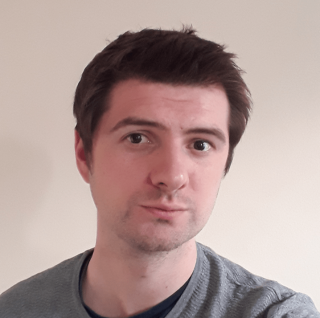Dr Tim Tierney awarded Epilepsy Research UK & Young Epilepsy Fellowship for bedside brain imaging
The award will fund Dr Tierney’s research to develop a wearable brain scanning sensor.

Dr Tim Tierney, a Research Fellow in the Centre’s MEG team has been awarded a prestigious Epilepsy Research UK and Young Epilepsy Fellowship to investigate how wearable brain scanning technology could be improved.
More than 100,000 young people in the UK live with epilepsy. As well as medical complications of seizures, an additional burden for children with epilepsy is that it may impair learning and development.
For some, neurosurgery is their only option for treatment, and the younger the person, the more likely the surgery will be successful. Surgical planning is heavily reliant on brain imaging, however younger children often struggle to remain still in conventional brain scanners, which can degrade image quality and possibly delay essential neurosurgery.
“The biggest challenge in acquiring good quality brain imaging data is making sure that a child stays as still as possible while having their brain scanned. If they move around during the scan, the quality of data is often negatively affected,” Dr Tierney said. “This problem affects nearly all brain imaging techniques, but none more so than with young people. Having a technology that could still provide good quality data even while a child moves about would be transformative.”
Dr Tierney and the Centre’s MEG team have developed a new wearable brain scanner technology, based around optically pumped magnetoencephalography (OP-MEG) sensors. Unlike traditional MEG systems, these do not require cryogenic cooling, and can measure magnetic field changes much closer to the scalp when worn as a helmet.
These OPM scanners show that it is possible to produce electrophysiological images of brain functioning while the subjects move naturally. Unfortunately, the technology can currently only function in specialised and expensive magnetically shielded rooms, which very few hospitals have.
The £299,931 Fellowship Award will go towards developing a radiofrequency magnetometer sensor, which can be worn in a normal hospital ward or residential setting. Dr Tierney and the team hope that a precise and wearable brain scanner would eliminate the need for invasive assessments and enhance surgical planning for children at a younger age.